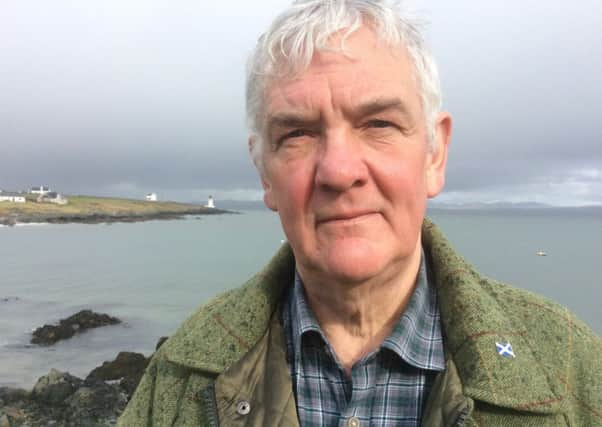Book review: The Drowned And The Saved, by Les Wilson


One of the many merits of Les Wilson’s account of how, as his sub-title has it, “war came to the Hebrides” is that he sets his story of the impact of war on the island of Islay in this wider context. In brief, he tells the story of the sinking of two troopships and an armed merchant cruiser which collided with one of them in a terrible storm, and of the generous and heroic response of the islanders. The ships were bringing some of the first American troops to Europe after the German policy of indiscriminate submarine attacks on merchant shipping had provoked the United States to declare war on Germany. The U-boat campaign was a gamble that Germany lost, although one should add that the war on the Western Front had turned against Germany after the failure of the March 1918 offensive – a point when significant numbers of American troops were yet to be deployed.
In February 1918 the troopship Tuscania, a British vessel, was sunk by a U-boat off Islay. Wilson describes the confusion, the horror and the bravery of the islanders, some of them boys in their teens, who risked their own lives to rescue the shipwrecked soldiers and crew from the sea. Nevertheless, 123 bodies were washed ashore “for the islanders to gather, attempt to identify and bury with dignity.” Over the previous years, Islay had lost many of its own sons in the war.
Advertisement
Hide AdEight months later, in the last weeks of the war, HMS Otranto foundered off Islay after that collision in a terrible storm. This time the loss of life was greater. “It was,” Wilson says, “the greatest tragedy in the history of the convoys that took more than a million young America soldiers to the Great War in Europe.”
Wilson tells his story vividly, with sympathy and intelligence, showing great skill in blending the events of these frightening nights with the larger picture of the war. The book is evidently thoroughly researched and there is a great deal of material in the form of official documents, letters (many between the parents of American soldiers and the islanders), and oral memories handed down from one generation to the next and then the next. Communication wasn’t always easy. Eighty percent of the islanders then were Gaelic speakers, though a great many would have been bilingual. The book comes with an introduction from George Robertson (Lord Robertson of Port Ellen), the former Minister of Defence and Secretary-General of NATO, whose grandfather was the police sergeant on Islay then – with three constables to assist – and who had to keep a record of the bodies and their identification, if that was possible.
This is an absorbing and moving book. Somehow by focusing on the impact of two disasters on one little island, Wilson brings the madness let loose on the world in that stupid, unnecessary war into close focus. At the same time his book is a tribute – a humble, even reverent tribute – to the survival in war of essential virtues: courage, kindness, and the selflessness which leads people to put their own lives in danger in an attempt to save others. He has a harrowing story to tell, but also an uplifting one. There are horrors here, but you are likely to think better of your fellow human beings after reading this book.
The Drowned And The Saved, by Les Wilson, Birlinn, 223pp, £12.99